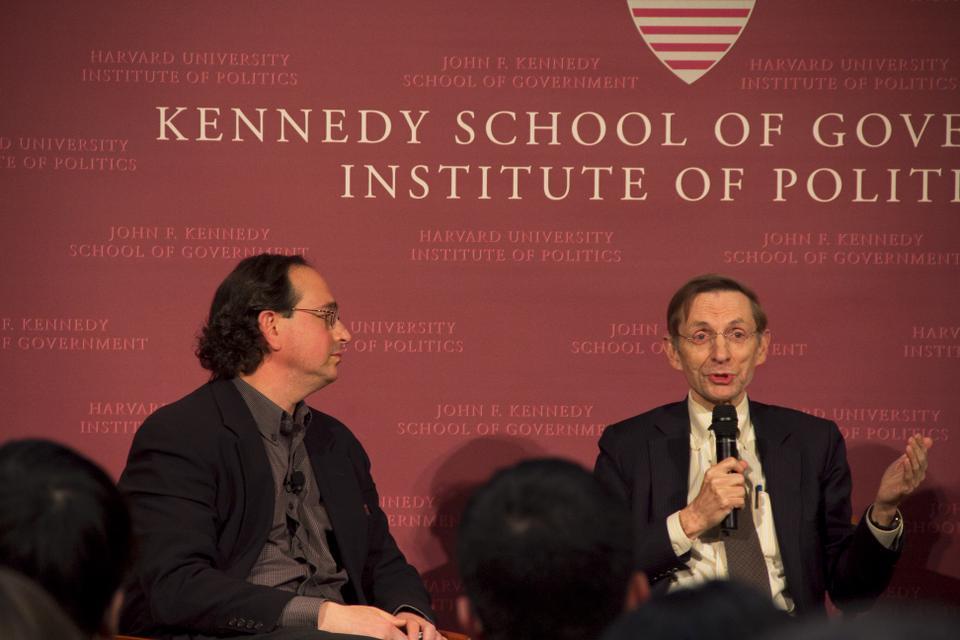
News
Summers Will Not Finish Semester of Teaching as Harvard Investigates Epstein Ties

News
Harvard College Students Report Favoring Divestment from Israel in HUA Survey

News
‘He Should Resign’: Harvard Undergrads Take Hard Line Against Summers Over Epstein Scandal

News
Harvard To Launch New Investigation Into Epstein’s Ties to Summers, Other University Affiliates

News
Harvard Students To Vote on Divestment From Israel in Inaugural HUA Election Survey
Panel Discuses Social Entrepreneurship

Investors are critical to social entrepreneurship, panelists said Friday at the John F. Kennedy Jr. Forum at the Institute of Politics.
Teams of Harvard Innovation Lab students also presented seven entrepreneurial ideas at the event.
Investors will only provide funding and support for a social entrepreneurship project if they believe it has a realistic goal, as well as a comprehensive plan of action, said panelist Christa A. Velasquez, a Senior Fellow at the Hauser Center.
“Investors want to see something more than the idea,” Velasquez said. “They want to see you doing what you say you’re going to do.”
In order to have the greatest impact and affect the most change, social entrepreneurs must work together as a team, said panelist Bill Drayton ’65, the chief executive officer and founder of Ashoka, a not-for-profit organization that invests in solutions to social problems.
Social entrepreneurs need characteristics that encourage them to work towards solving social problems, said Dayton.
He described social entrepreneurs as “people who are in it for the good of it all.”
“When you tear down the walls between business and society, you get a gigantic explosion of productivity,” Drayton said.
Seven teams of students from the Harvard Innovation Lab presented their ideas, which ranged from ending veteran homelessness in the United States to investing in farmers in Sri Lanka.
One team sought to promote literacy in developing countries by providing e-readers, called Kumba Readers, to children. By reading books, these children would gain credits that they could exchange for resources for their families.
Want to keep up with breaking news? Subscribe to our email newsletter.
